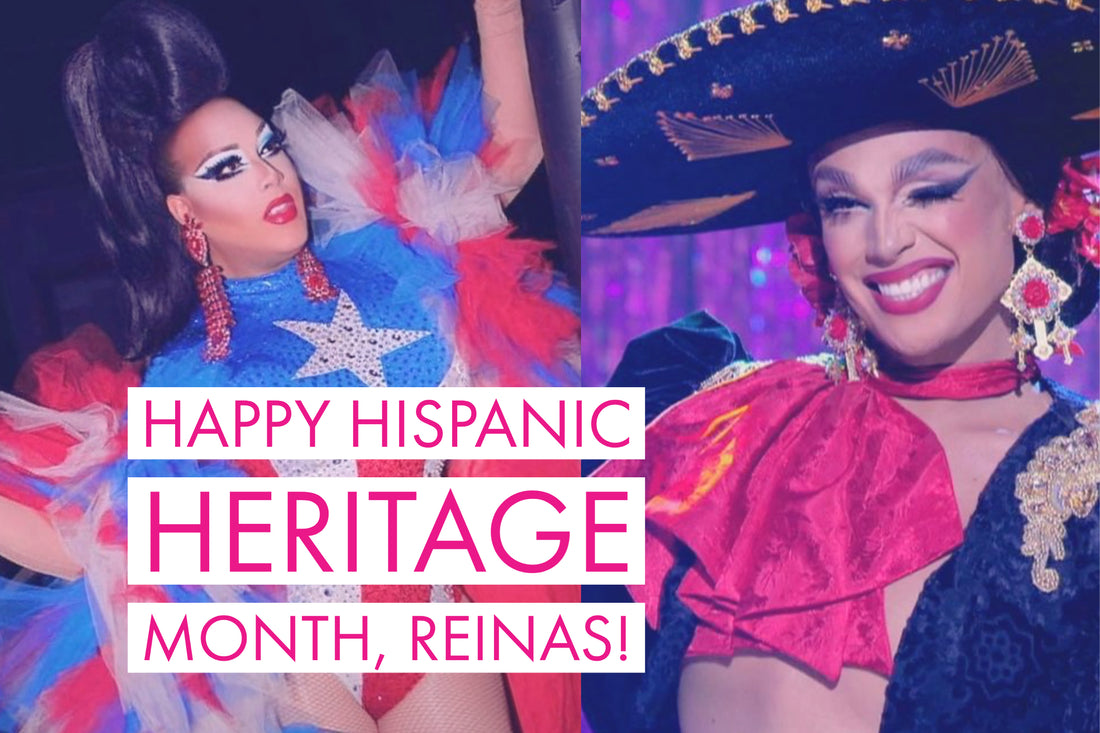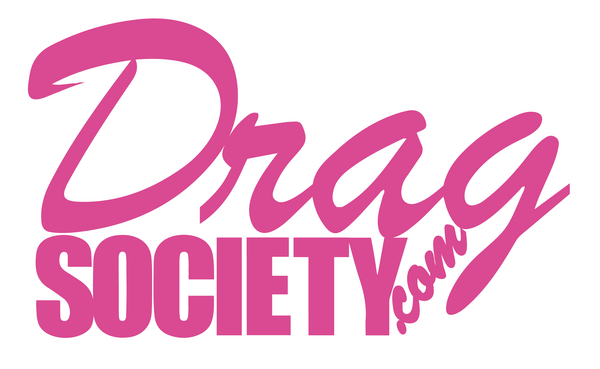
9 Hispanic Icons Loved in Latinx Drag Community
Share

We are well into the month-long festivities that recognize the cultures, histories, and heritage of Hispanic and Latin people in the U.S.
In short, Hispanic/Latinx Heritage Month is a time to show some love to our raza. This includes celebrating the contributions of those who have made an impact on the Latinx drag community.
So make a cafecito, turn up the m√∫sica and dive into this legendary list of fierce Hispanic icons and learn how they have inspired today's drag
Catiria Reyes

Catiria Reyes was a famous Puerto Rican drag performer and transgender beauty pageant winner.
She started performing at just 19 and over the course of her career, she won multiple pageant titles, including the coveted Miss Continental— twice!
Reyes even landed a cameo in the movie, To Wong Foo Thanks for Everything, Julie Newmar.
Reyes was one of the main performers at the New York City Latino nightclub La Escuelita, where she entertained crowds for nearly two decades.
Lady Catiria announced she was HIV positive at the 1996 Miss Continental show. For her final performance, Reyes had a $1,800 gown made to say "farwell" to thousands of her fans.
Performers like Candis Cayne and Angel Sheridan remember Lady Catiria as an influential queen and mentor.
Frida Kahlo
Frida Kahlo's modern attitudes towards sexuality and artistic expression make her an icon in not only the LGBTQ+ community, but also in drag.
The artist began to paint self-portraits after she was severely injured in a bus accident. In 1929, Kahlo married a fellow artist, Diego Rivera.
The two had a fiery relationship which led Frida to a string of affairs with both men and women.
However, her life was largely overshadowed by her husband. It was only after she passed and the 1970s Feminist Revolution that the public truly understood what she represented.
Kahlo challenged gender norms on and off the canvas. She was often seen wearing male clothing in public and believed it made her a better artist.
Frida's self-acceptance and confidence is something every queen should aim for.
Sylvia Rivera
A veteran of the 1969 Stonewall uprising, Sylvia Rivera fought hard against the exclusion of transgender people from the Sexual Orientation Non-Discrimination Act in New York. She was a loud and persistent voice for the rights of people of color and for "gay rights."
Along side Marsha P. Johnson, Rivera established the Street Transvestite Action Revolutionaries (STAR). The group dedicated it's time to helping homeless young drag queens, gay youth, and trans women.
Her infamous 1973 speech, "Y'all Better Quiet Down," amplified the voices of the most vulnerable members of the gay community.
Walter Mercado
The flamboyant Puerto Rican astrologer, Walter Mercado was a familiar face in many Latino homes.
Dressed in jewels and a dramatic cape, the zodiac expert appeared for 15 years on “Primer Impacto,” reciting horoscope readings to his nightly viewers.
Over the span of his career, Mercado crossed multiple generations of Latinx families.
Drag Race contestant, Alexis Mateo recently paid tribute to the star on season 5 of RuPaul's Drag Race All-Stars.
The Latinx drag community remembers Mercado as a rule breaker. He challenged norms in a culture dominated by religion and machismo ideologies.
For many, Mercado more than a TV personality. Instead, he was more like a tio who delivered daily messages of "mucho, mucho amor."
Gloria Estefan
The Cuban-born singer, songwriter of the Miami Sound Machine, achieved worldwide success with her song, "Conga." Members of the Latinx drag community consider Gloria Estefan an ally and legend.
Her music video for "Everlasting Love" featured a full cast of drag queens and remains an iconic watch for generations of performers everywhere.
"We had a contest all over the US – I think there’s one girl in there playing me but the rest were all drag performers," Estefan recalled in an interview.
"I ended up taking two on the road with me from the video. I think it’s fantastic and I love it – love, love, love it!"
In her career, she earned three Grammy awards and a Hollywood Walk of Fame star. Today, Estefan continues to inspired queens to dance, sing and be free.
Selena
You might know her as the "Mexican Madonna," or "La Reina de Tejano"— regardless, we'd do "anything for Selenas!"
Selena Quintanilla was a Mexican-American musician who ruled the 90s Latin music charts. Bops like "Como La Flor" and "Bidi Bidi Bom Bom" were popular tunes that made her legendary.
Selena had big heart. Her loving personality showed through her community outreach efforts on raising awareness about the AIDS epidemic.
Even after her tragic death, Selena continues to inspire queens and their personas; from that iconic purple jumpsuit to her bedazzled bustiers.
Celia Cruz
AZUCAAAAAAAR! Celia Cruz brought Cuba to the U.S. with salsa hits like, "La Vida Es Un Carnaval," and "La Negra Tiene Tumbao." Celia's vibrant outfits, bold wigs, and crazy headpieces could put any Drag Race contestant to shame.
Cruz’s art and voice installed the Latinx community with pride each time she sang. The Latin cultural icon left an influential mark on the world and broke musical and demographic barriers.
The Queen of Salsa became a symbol of pride and freedom, and she brought Afro-Cuban music to the world as a black woman in the time of racism and sexism.
Jennifer Lopez
Mariah might not know her, but we stan this Puerto Rican queen any chance we get!
J.Lo is a great inspiration to the modern Latinx drag community and her alliance goes far beyond her dance floor hits and fierce costumes.
Over the years, Lopez helped raise millions of dollars for HIV/AIDS research and for the Pulse Orlando victims.
The American Idol judge paid tribute to her "loyal" queer fans for being "always on the floor and in my heart".
"If I do anything that makes one child out there feel empowered... my dream has come true," she told an audience at the Beverly Hilton Hotel.
Juan Gabriel
Admired for his voice and flamboyant stage attire, El Divo de Juarez helped inspire modern Mexican regional music through his songwriting.
Gabriel is recognized as a positive influence and a breaker of barriers. He often used criticism as inspiration for his songs, along with experiences in love and heartbreak.
He is credited with writing classics songs, including the famed ballad, "Amor Eterno."
“Simply put, a queer became Mexico's voice and inexplicably, there was no shame,” Benjamin Alire Sáenz, Chicano writer and poet, said on how Gabriel inspired him. “There was only pride. How lovely. How very lovely.”
Want in on the latest celebrity queen curations? Subscribe to Drag Society and get this seasons latest box here!
